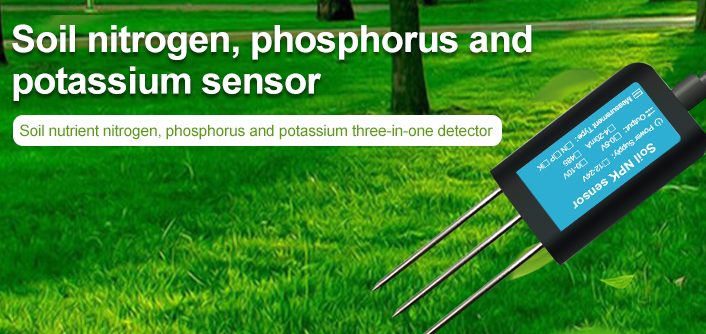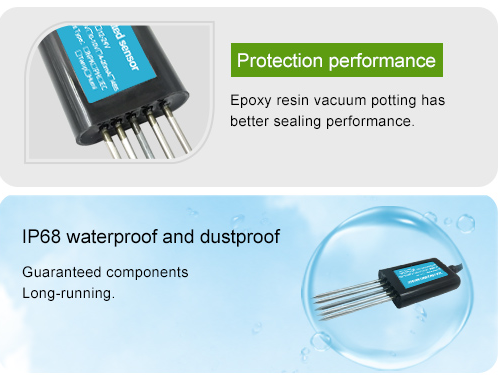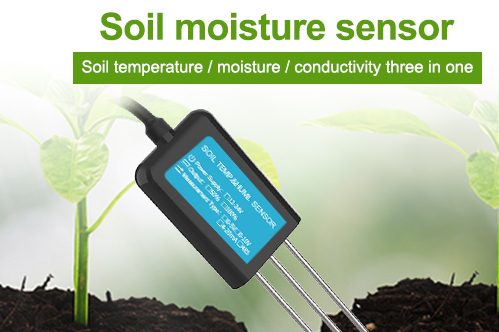The application of soil moisture meter provides an efficient and convenient method for soil moisture monitoring. Accurate and efficient measurement of soil moisture levels is critical to ensuring optimal crop yields, protecting water resources and preventing soil erosion. In this article, we will guide you through the best soil moisture meters on the market and their features and benefits.
Types of Soil Moisture Meter:
Tensiometer Meters:
These meters use a probe or needle that is inserted into the soil to measure the amount of force required to penetrate the soil surface. This method measures soil tension or the force required to extract moisture from the soil. These meters are ideal for measuring the moisture content of soils in gardens, lawns, and small-scale agricultural settings.

Electrical Conductivity Meters:
These meters measure the electrical conductivity of water in soil to determine the moisture content. The higher the conductivity, the greater the moisture content. These meters are ideal for measuring moisture levels in soils with high salt content, such as those found in coastal areas.
Capacitance Meters:
These meters use electromagnetic waves to measure the dielectric constant of soil, which correlates with the soil moisture content. These meters are ideal for measuring moisture content in large-scale agricultural fields, vineyards, and orchards.
Time Domain Reflectometry (TDR) Meters:
These meters use microwave technology to measure the dielectric properties of soil, including its moisture content. These meters are ideal for measuring soil moisture levels in various soil types, including sand, clay, and loam.
Benefits of Using Soil Moisture Meters:
Optimal Crop Yield:
Soil moisture meters help farmers and gardeners optimize crop yield by providing accurate data on soil moisture levels. This information enables effective irrigation scheduling and prevents over or under-watering.

Water Conservation:
By monitoring soil moisture levels, soil moisture meters help conserve water resources by ensuring that water is used efficiently, reducing wastage.
Soil Health:
Maintaining optimal soil moisture levels promotes healthy soil and prevents soil erosion. Soil moisture meters provide valuable information on soil health, enabling farmers and gardeners to address any issues promptly.
Time and Cost Savings:
Soil moisture meters provide a quick and efficient method for measuring soil moisture levels, saving time and labor costs associated with traditional soil sampling methods.
Environmental Benefits:
Efficient water use through soil moisture monitoring benefits the environment by reducing water wastage and conserving natural resources.
Conclusion:
Soil moisture meters are valuable tools for farmers, gardeners, and environmentalists alike. They provide a quick and efficient method for measuring soil moisture levels, enabling optimal crop yield, water conservation, and soil health maintenance. By selecting the best soil moisture meter suited to your needs and application, you can ensure accurate and efficient soil moisture monitoring that will benefit your crops, the environment, and your bottom line.
